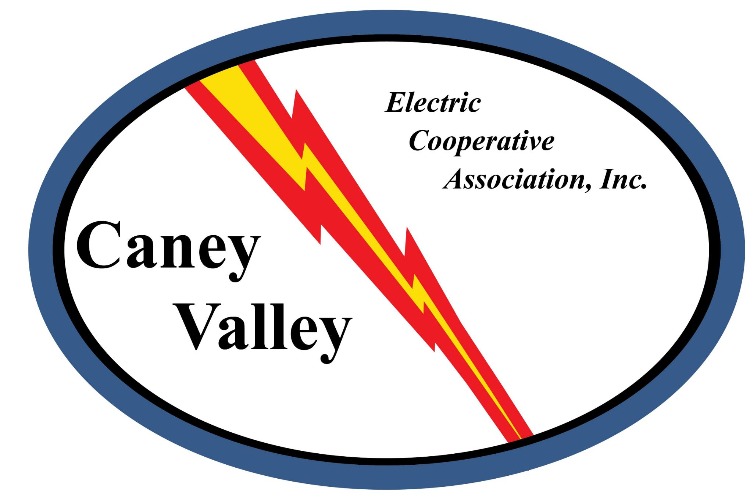Frequently Asked Questions
What should I do if my electricity goes out?
First, check the main breaker panel in your house for any tripped breakers or blown fuses. Check any outside breakers and the breaker on the meter pole. If that is in the Off position, push it to On. If it trips back Off, you have trouble in your wiring and will need to call an electrician. Otherwise, call our office number to report your outage, and be sure to stay on the line while the dispatcher collects all your pertinent information.
What should I do if my lights are blinking?
Contact our office to report your problem. We can correct power quality issues, but reporting it helps us to narrow down where the problem is occurring.
What is the Customer Charge on my bill?
The Customer Charge is designed to help cover the cooperative’s fixed costs to provide service to each meter, regardless of the kWh’s used. Some of these fixed costs include connecting to the electrical system, metering, billing, service maintenance and administrative services associated with supplying power to the member.
What is the Power Cost Adjustment (PCA) on my bill?
The PCA is designed to cover only wholesale power costs over (or below) the base power cost of 7¢ built into the electric rates. The PCA varies each month depending on the wholesale power costs, and is a flow-through on your electric bill.
Who decides when a rate increase is needed?
Caney Valley’s Board of Trustees sets the cooperative rates. The trustees are members who pay the same rates as you. They are elected by you and other members each year. Trustees want to ensure electric rates are adequate to maintain the health of the cooperative and to provide the necessary revenue for delivery of reliable electric service. The trustees want to avoid rate increases, but also need to ensure the long-term financial stability of the cooperative.
How does a member get elected to the board?
A Nominating Committee is appointed each January to select two or more members in each district to run for election at the annual meeting in March. If you wish to be selected to run, contact a board trustee that serves your district. Members can also run by petition, which requires at least 15 or more members to make a nomination in writing at least 20 days prior to the annual meeting. Nominations are also accepted from the floor during the annual meeting.
What is the procedure for voting?
Each member is allowed one vote at the annual meeting. A “member” may be one person, a joint membership such as husband &/or wife or two non-married individuals, a business or a corporation. After nominations are accepted from the floor, voting is ordered by the cooperative’s attorney, and paper ballots are completed and collected. Volunteer members are selected to count the ballots, and such counting is overseen by the attorney. The attorney announces the results after counting is completed.
How long does a board member serve?
Trustees serve 3-year terms when elected, and are eligible to serve for 5 consecutive terms. They can be re-elected any time after sitting out a full term.
How large of an area does Caney Valley Electric serve?
The cooperative operates in 5 counties – all of Chautauqua and Elk Counties, the eastern half of Cowley County, and portions of Butler and Montgomery Counties. Unlike investor-owned utilities (IOUs), the cooperative serves only an average of 3 meters per mile of line. This very small number of meters is the main reason the cooperative’s rates are higher than the large IOUs, which average over 30 meters per mile of line.
Why is my electric bill high when I’ve been gone or on vacation?
Even though you are gone, your appliances are still operating. And if you’re gone in the summer, freezers and refrigerators will cycle more often if your home is shut up and the air inside is warmer than normal.
Why is my electric bill higher than my neighbors?
There are so many variables involved when comparing electric usage. The size of the home and family, age and quality of appliances, type of heating and cooling systems, quality of insulation, etc. If you are concerned about your usage, contact our office for suggestions on ways to save energy. We also have some units available to loan out so you can track any excessive energy use on large appliances.
Are there agencies that might help pay an electric bill in time of need?
There are several area agencies in our area that have been known to assist customers with bill payment in a time of crisis. Please be advised that our cooperative is not affiliated with these agencies in any way and has no agreements with them. There is no guarantee assistance will be granted. You might contact the Salvation Army, the Red Cross, or the Sedan Ministerial Alliance. LIEAP funds are also available through the state of Kansas at certain times of the year, to assist our members who qualify under low-income guidelines.
What are capital credits and when are they paid out?
A member-owned cooperative does not technically earn profits. Any revenues over and above the cost of doing business are considered margins. These margins represent an interest-free loan of operating capital by the membership to the cooperative. This capital allows the cooperative to finance operations and a portion of construction costs, with the intent that this capital will be repaid to you in later years. Our by-laws provide that capital credits be paid upon the death of a member. The board annually considers the financial condition of the cooperative, and may approve a general retirement if conditions allow it.
